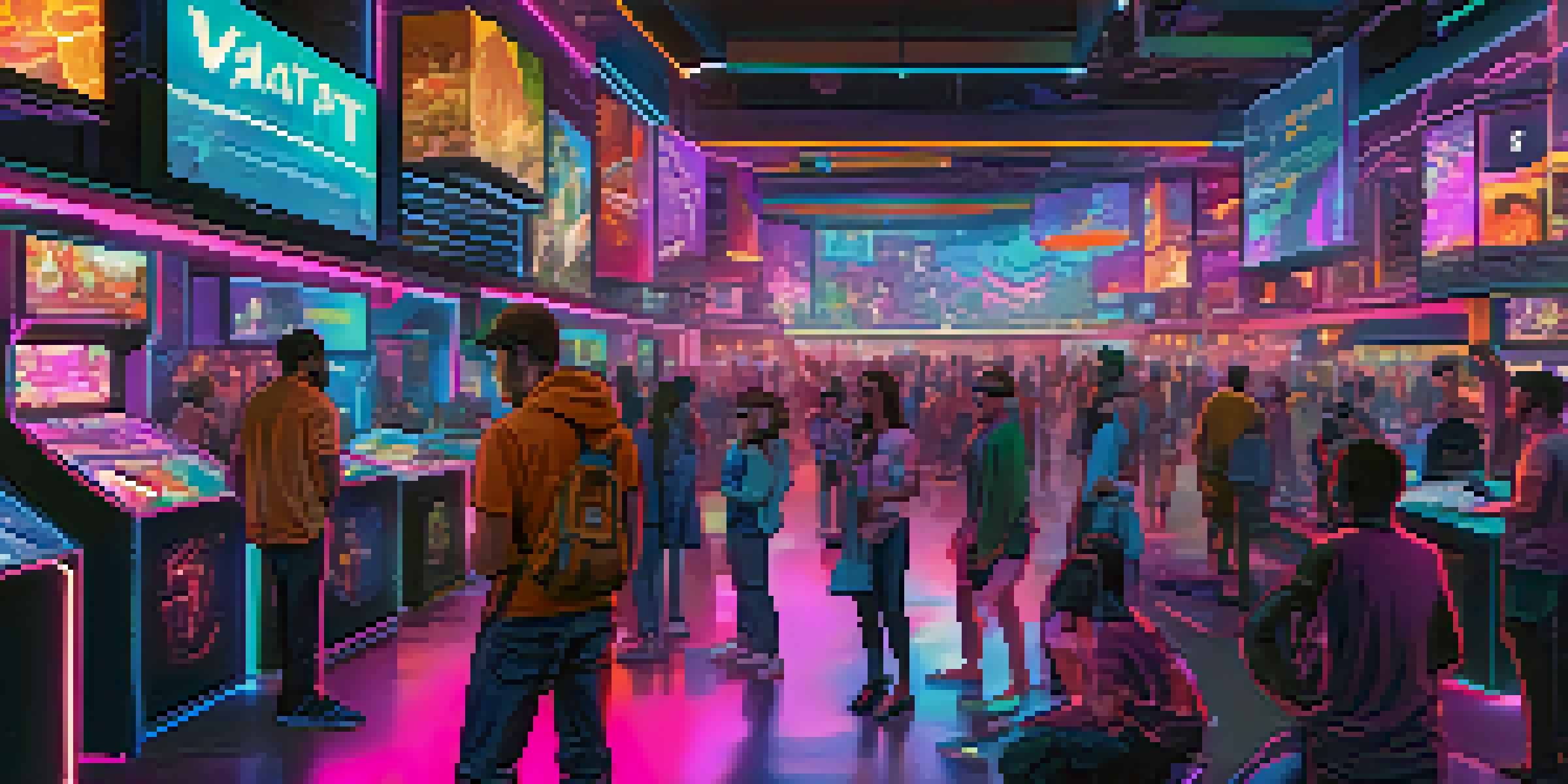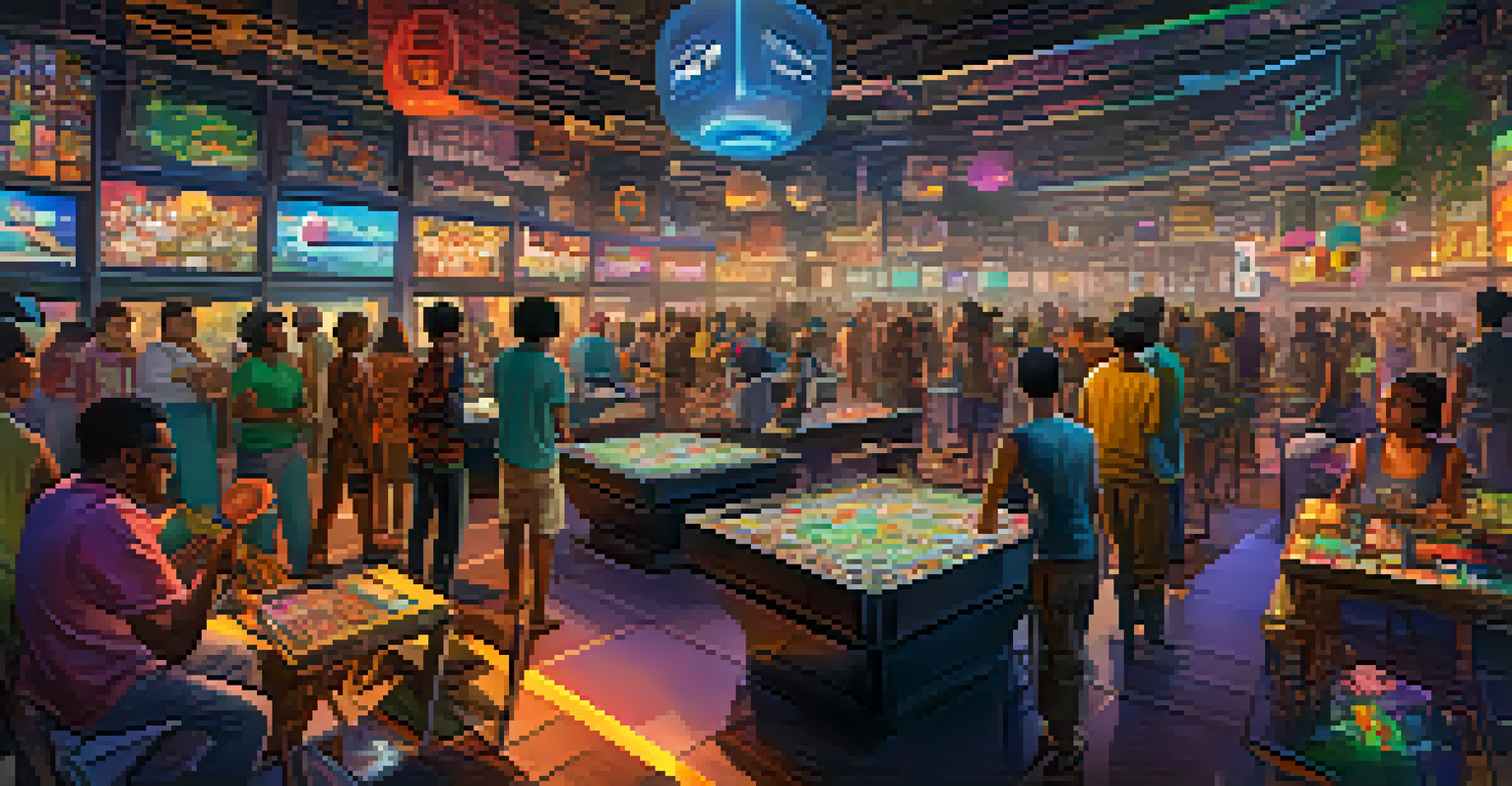Smart Contracts in Gaming: Automating In-Game Transactions

What Are Smart Contracts and How Do They Work?
Smart contracts are self-executing contracts where the terms are directly written into code. They operate on blockchain technology, ensuring that the contract is transparent and tamper-proof. When specific conditions are met, the contract automatically executes without needing intermediaries, making them efficient and trustworthy.
Smart contracts are the digital evolution of traditional contracts—redefining trust in a digital world.
Think of a smart contract like a vending machine: you insert money, make a selection, and the machine delivers your snack without needing a cashier. This same principle applies in gaming, where in-game assets can be transferred or traded without human intervention. It's this automation that sets smart contracts apart from traditional agreements.
In gaming, smart contracts can handle everything from item ownership to transaction history. This ensures players have a clear and immutable record of their digital assets, enhancing trust within the gaming community.
Benefits of Using Smart Contracts in Gaming
One of the most significant benefits of smart contracts is their ability to reduce fraud. Since transactions are recorded on a blockchain, it becomes nearly impossible to duplicate or tamper with in-game assets, providing players with peace of mind. This transparency builds trust among players and developers alike.

Additionally, smart contracts streamline in-game transactions, allowing players to buy, sell, or trade assets without delays. Imagine a marketplace where every trade happens instantly and securely; that's the power of smart contracts. This efficiency can lead to a more dynamic and engaging gaming experience.
Smart Contracts Enhance Gaming
Smart contracts automate transactions in gaming, providing transparency and reducing the risk of fraud.
Moreover, smart contracts can enable microtransactions in a way that minimizes fees. Players can engage in frequent, small transactions without worrying about high costs, making it easier to purchase upgrades or items. This flexibility can encourage spending and enhance overall gameplay satisfaction.
Real-World Examples of Smart Contracts in Gaming
Several games are already leveraging smart contracts to enhance player experiences. For instance, decentralized games like Axie Infinity use smart contracts to facilitate ownership and trading of unique in-game creatures known as Axies. Players can buy, sell, or breed these creatures, all secured by smart contracts.
The future of gaming is not just about playing; it's about owning, trading, and engaging in a dynamic, player-driven economy.
Another example is CryptoKitties, where players can collect and breed virtual cats. Each cat is a unique digital asset stored on the blockchain, and ownership is verified through smart contracts. This ensures that when you buy a CryptoKitty, you truly own it, and can trade or sell it at will.
These examples illustrate how smart contracts not only create new markets but also empower players by giving them true ownership of their digital assets. As more developers adopt this technology, we can expect to see even more innovative uses in the gaming industry.
Challenges of Implementing Smart Contracts in Gaming
While the potential of smart contracts in gaming is vast, there are challenges to consider. One significant hurdle is the complexity of blockchain technology itself. Many players may not fully understand how smart contracts work, which can lead to confusion and hesitation in adopting these systems.
Moreover, the scalability of blockchain networks can become an issue during peak usage times. If a game experiences a sudden surge in players, it can lead to slow transaction speeds or even network congestion, negatively affecting the gaming experience. Developers must find solutions to ensure their platforms can handle high traffic.
NFTs Empower Player Ownership
Non-fungible tokens (NFTs) enable players to own unique in-game assets securely through smart contracts.
Finally, regulatory concerns also loom over the use of smart contracts in gaming. Depending on the jurisdiction, there may be legal implications regarding the ownership and trade of digital assets. Developers need to navigate these regulations carefully to avoid potential pitfalls.
The Role of NFTs in Smart Contracts for Gaming
Non-fungible tokens (NFTs) are a crucial component of smart contracts in gaming. Unlike cryptocurrencies like Bitcoin, which are interchangeable, NFTs represent unique items or assets. This uniqueness is what makes them ideal for in-game items, as each token can signify ownership of a specific character, weapon, or piece of land.
By utilizing smart contracts for NFTs, developers can ensure that ownership, transaction history, and scarcity of in-game assets are secure and transparent. Players can buy, sell, or trade these items confidently, knowing that the blockchain verifies their legitimacy.
As the popularity of NFTs continues to grow, we can expect more games to incorporate them into their ecosystems. This integration will not only enhance the gaming experience but also create new revenue streams for developers through the sale of unique digital assets.
Future Trends: Where Are Smart Contracts in Gaming Headed?
The future of smart contracts in gaming is bright, with ongoing innovations expected to enhance their applications. We may see the rise of fully decentralized gaming platforms where players have complete control over their assets and transactions. This shift could revolutionize the way games are designed and monetized.
Furthermore, as blockchain technology matures, we can anticipate improvements in scalability and transaction speed. This will address some of the current challenges and make smart contracts even more effective for gaming applications. The smoother the transaction process, the more enjoyable the gaming experience for players.
Future Innovations in Gaming
The ongoing development of smart contracts and blockchain technology promises to transform game design and player experiences.
Lastly, as the gaming community becomes more familiar with smart contracts and NFTs, we can expect increased demand for games that incorporate these technologies. Developers who embrace this shift will likely gain a competitive edge, paving the way for a new era in gaming that prioritizes player ownership and autonomy.
Conclusion: Embracing Smart Contracts in the Gaming World
In conclusion, smart contracts are poised to transform the gaming landscape by automating in-game transactions. They offer transparency, security, and efficiency, all of which are crucial in creating a positive player experience. As more developers explore this technology, we will likely see a shift towards greater player empowerment.
While challenges remain, such as scalability and regulatory issues, the benefits of smart contracts in gaming are too significant to ignore. They provide opportunities for innovation and can create vibrant digital economies where players feel valued and engaged.

As we look to the future, embracing smart contracts will be essential for developers aiming to stay relevant in a rapidly evolving industry. By prioritizing player interests and leveraging cutting-edge technology, the gaming world can reach new heights of creativity and connectivity.